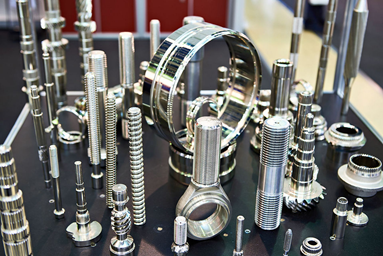Brazing is a technique suited for joining various metals, particularly those with high melting points. Using filler metals, it creates strong and corrosion-resistant joints without melting the base materials. Which Materials are Suitable for Brazing?
Below are common materials suitable for brazing:
- Copper and Its Alloys
- Copper: Widely used in brazing, especially with silver or copper alloy fillers. Copper bonds well with filler metals and resists oxidation during the process.
- Brass and Bronze: These alloys are also common due to their good brazing properties and corrosion resistance.
- Stainless Steel
- Known for its high corrosion resistance, strength, and hardness, stainless steel forms durable joints when combined with silver or copper-based fillers.
- Aluminum and Aluminum Alloys
- Although brazing aluminum requires higher temperatures, it bonds well with aluminum-based fillers (e.g., aluminum-silicon alloys). Proper temperature control is crucial due to aluminum’s high thermal conductivity.
- Titanium and Titanium Alloys
- Lightweight, strong, and corrosion-resistant, titanium is commonly brazed using silver-based or titanium alloy fillers in aerospace, medical, and chemical industries.
- Nickel and Nickel Alloys
- Nickel and its alloys, such as Inconel, are ideal for high-temperature and corrosive environments. Nickel-based fillers are often used in aerospace and chemical applications.
- Steel (Including Carbon Steel and Alloy Steel)
- Brazing can join carbon and alloy steels, particularly for applications with lower mechanical demands. Copper-based or silver-based fillers provide strong, corrosion-resistant joints.
- Precious Metals
- Gold, Silver, Platinum, and Palladium: These materials are less common but are used for high-precision applications, such as electronic devices, medical instruments, and premium industrial equipment.
- Hard Alloys
- Materials like tungsten and molybdenum require high-temperature fillers (e.g., silver or copper-based alloys) due to their hardness and high melting points.
- Glass and Ceramics
- Brazing is also used for some ceramics and glass materials, especially when they need to be joined with metals. This is common in electrical connections and seals.
- Magnesium and Magnesium Alloys
- Magnesium’s low density makes it ideal for aerospace and automotive industries. Special magnesium-based fillers and precise temperature control are required for brazing.

Suitable Filler Metals for Brazing
The choice of filler metal depends on the base material and temperature requirements:
- Silver-Based Fillers: Suitable for brazing stainless steel, copper, aluminum, and titanium; offers high strength and excellent corrosion resistance.
- Copper-Based Fillers: Ideal for copper, copper alloys, and steel; provides good conductivity and wear resistance.
- Aluminum-Based Fillers: Designed specifically for aluminum and aluminum alloys, commonly used in automotive, electronic, and aerospace industries.
- Gold-Based Fillers: Used for joining precious metals like gold and silver, often in electronics and precision instruments.
Materials Unsuitable for Brazing
Certain materials are challenging to join due to their physical or chemical properties:
- Plastics and Rubbers: Non-metallic materials are generally unsuitable for brazing.
- High-Melting-Point Materials: Some ceramics and refractory metals (e.g., tungsten, molybdenum) require specialized techniques and equipment.
- Heavily Oxidized Materials: Metals prone to oxidation during brazing may compromise joint quality unless special precautions are taken.
In summary, brazing is ideal for joining high-melting-point metals, minimizing thermal stress, and achieving strong, high-quality joints in applications demanding precise and reliable connections.

